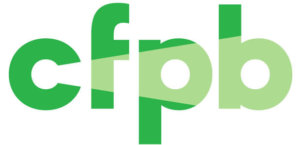May 17: Recent CFPB Activities
 The Consumer Finance Protection Bureau (CFPB) is responsible for consumer protection in the financial sector. CFPB’s jurisdiction includes credit unions, banks, securities firms, payday lenders, mortgage-servicing operations, foreclosure relief services, debt collectors, and other financial companies operating in the United States. NASCUS closely monitors CFPB developments and responds to requests for comments on rules impacting the credit union system.
The Consumer Finance Protection Bureau (CFPB) is responsible for consumer protection in the financial sector. CFPB’s jurisdiction includes credit unions, banks, securities firms, payday lenders, mortgage-servicing operations, foreclosure relief services, debt collectors, and other financial companies operating in the United States. NASCUS closely monitors CFPB developments and responds to requests for comments on rules impacting the credit union system.
Recent Updates
Statement on Supreme Court Decision in CFPB v. CFSA
“For years, lawbreaking companies and Wall Street lobbyists have been scheming to defund essential consumer protection enforcement. The Supreme Court has rejected their radical theory that would have devastated the American financial markets. The Court repudiated the arguments of the payday loan lobby and made it clear that the CFPB is here to stay.”
“Congress created the CFPB to be the primary federal watchdog protecting consumers from predatory and abusive practices in the financial sector. Since the CFPB opened its doors in 2011, it has delivered more than $20 billion in consumer relief to hundreds of millions of consumers and has handled more than 4 million consumer complaints.”
“Today’s decision is a resounding victory for American families and honest businesses alike, ensuring that consumers are protected from predatory corporations and that markets are fair, transparent, and competitive.”
“This ruling upholds the fact that the CFPB’s funding structure is not novel or unusual, but in fact an essential part of the nation’s financial regulatory system, providing stability and continuity for the agencies and the system as a whole. As we have done since our inception, the CFPB will continue carrying out the vital consumer protection work Congress charged us to perform for the American people.”
CFPB Distributes $384 Million to 191,000 Victims of Think Finance’s Illegal Lending Practices
The Consumer Financial Protection Bureau (CFPB) today distributed more than $384 million to about 191,000 consumers harmed by Think Finance. Think Finance, a Texas-based online lender, deceived borrowers into repaying loans they did not owe. The CFPB distributed the money through its victims relief fund.
The CFPB’s victims relief fund, also known as the Civil Penalty Fund, has distributed more than $1 billion to consumers harmed by scams, frauds, and other illegal practices. The CFPB’s victims relief fund is a unique tool that helps the agency make harmed consumers whole when lawbreakers are unable to fully compensate their victims. Penalties paid into, and disbursed from, the victims relief fund are separate from monetary redress the CFPB orders lawbreakers to pay directly to harmed consumers.
PUBLISHED
CFPB and FRB Issue Joint Regulation CC Threshold Adjustments
On May 13, 2024, the CFPB and the Federal Reserve Board announced inflation adjustments to the dollar amount thresholds in Regulation CC relating to availability of funds as required by the Expedited Funds Availability Act (EFA Act). These adjustments are effective July 1, 2025.
You can access the final rule here: https://www.consumerfinance.gov/rules-policy/final-rules/availability-funds-and-collection-checks-regulation-cc-threshold-adjustments/.
Agencies announce inflation-adjusted dollar thresholds for Regulation CC funds availability
The Consumer Financial Protection Bureau and the Federal Reserve Board today jointly adjusted for inflation dollar amounts relating to the availability of customer funds.
These changes in Regulation CC include the minimum amount of deposited funds that banks must make available for withdrawal by opening of business on the next day for certain check deposits as well as the amount of funds deposited by certain checks in a new account that are subject to next-day availability.
By law, the agencies are required to adjust these dollar thresholds every five years by the annual percentage increase in the Consumer Price Index for Urban Wage Earners and Clerical Workers (CPI-W). The inflation measurement period for this adjustment began in July 2018 and ended in July 2023.
To help ensure that depository institutions have sufficient time to implement the adjustments, the compliance date for the new amounts is July 1, 2025.
Read the Availability of Funds and Collection of Checks (Regulation CC) final rule.